Would you like to turn your aquarium into a living underwater sea world? Great way to add lush volume and visual interest with Myriophyllum plants. While these pretty plants are easy to care for in the right setting, they can be difficult to deal with if you aren’t keeping up with the right one.
Content Table
In this article, we have talked about how to care for Myriophyllum Mattogrossense. We’ll cover its characteristics, substrates, nutrients, and Myriophyllum Mattogrossense care tips. This information will help you to create a living underwater garden, no matter how much you know about aquascaping.
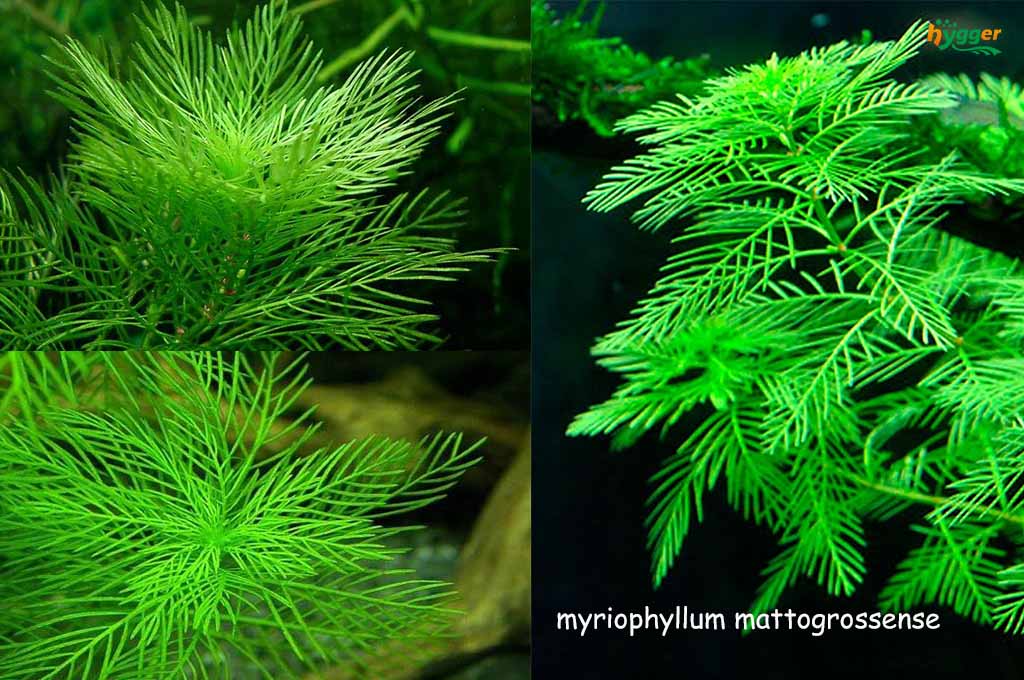
Myriophyllum mattogrossense care
Myriophyllum Mattogrossense
The myriophyllum mattogrossense is an aquarium plant well loved for its ornate, feathery foliage and reasonable ease of care. This species is a versatile species suitable for many aquascape styles.
Key Characteristics
- Family: Haloragaceae
- Origin: Brazil
- Growth rate: Fast-growing
- Height: Can reach up to 30-60 cm (12–24 inches)
- Light requirements: Moderate to highlight
- CO2 requirements: Moderate to high CO2 levels
- Water parameters: Soft to moderately hard water with a pH of 6.0-7.5
- Temperature:22-28°C (72-82°F)
Appearance
- Leaves: Finely divided, feather-like leaves that are typically a bright green color.
- Stems: Slender and reddish-brown.
- Growth habit: Upright and bushy, often forming dense clumps.
Care and Maintenance
- Trimming: Regular trimming is necessary to maintain its shape and prevent it from becoming too dense.
- Fertilization: Requires a good supply of nutrients, especially nitrogen and potassium.
- Propagation: Easily propagated by cuttings.
Benefits in Aquariums
- Oxygen production: Contributes to oxygen levels in the water.
- Habitat: Provides hiding places and shelter for fish and shrimp.
- Aesthetics: Adds beauty and visual interest to aquariums.
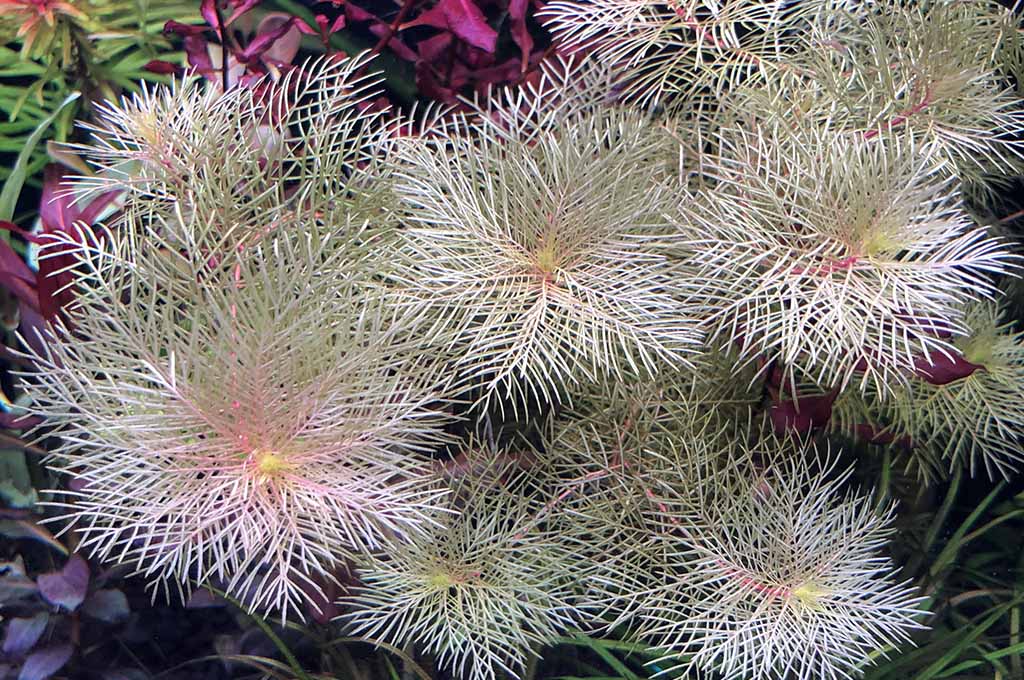
Golden myriophyllum mattogrossense aquascape
Substrate for Myriophyllum Mattogrossense
- Nutrient-Rich Gravel: This plant will grow enthusiastically under fine-grained, nutrient-rich gravel. One beneficial side to this is the stability it will give the roots a base and the release of nutrients into the water column.
- Aquarium Soil: Aquarium soils have been specially formulated to supply necessary nutrients to plants. Often containing organic matter and capable of keeping a stable pH, they are common.
- Sand: Gravel or soil might be nutrient-rich, but it’s also quite wet, sand is not nutrient-rich, but it can be used as a base layer for a substrate setup because It offers a soft and stable root board.
Factors to Consider When Choosing a Substrate
- Nutrient Content: Make your substrate have all essential nutrients, such as nitrogen, phosphorus, and potassium.
- Particle Size: Generally, Myriophyllum mattogrossense prefers a fine-grained substrate, which helps better root penetration.
- pH and Hardness: Imagine looking at your desired parameter, water pH and hardness. These factors are influenced by some substrates.
- Appearance: If you care about the look of your aquarium, pick a substrate that goes with it.
Additional Tips
- Fertilization: Even with a nutrient-rich substrate, regular fertilization may be necessary to support optimal plant growth.
- Substrate Depth: A substrate depth of 2–3 inches is generally sufficient for Myriophyllum mattogrossense.
- Root Stability: Ensure the substrate is packed firmly to provide adequate root stability.
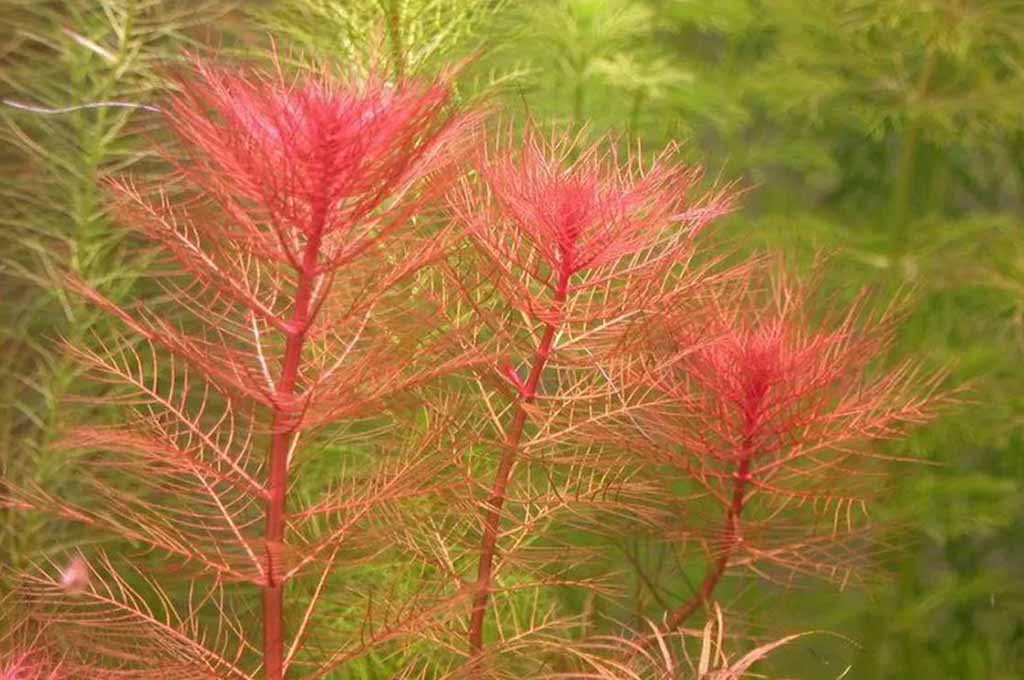
Red myriophyllum mattogrossense
Does Myriophyllum Mattogrossense Need CO2
We found that Myriophyllum mattogrossense generally does well with carbon dioxide (CO2) added to the aquarium. But CO2 is important for photosynthesis, the process by which plants convert light into energy. Adequate amounts of CO2 will help your plant grow healthier and faster, with a brighter green color.
CO2 Injection
With a CO2 injection system, you can give your Myriophyllum mattogrossense the amount of CO2 it requires. Usually, this includes a CO2 tank, regulator, and nano diffuser. But the CO2 is dispersed by the diffuser and then absorbed by the plants in the water.
Nutrient Requirements
In addition to CO2, Myriophyllum mattogrossense requires a balanced supply of nutrients. These include:
- Nitrogen (N): Essential for plant growth and development.
- Phosphorus (P): Supports healthy root growth and overall plant health.
- Potassium (K): Helps regulate plant metabolism and water balance.
- Trace elements: Include iron, magnesium, calcium, and other micronutrients that are necessary for plant growth.
Fertilization
Regular fertilization can give nutrients to your plant. Aquariums have liquid and tablet fertilizers. Use as directed by the manufacturer and follow dosage instructions. With lots of CO2 and nutrients, you can provide your Myriophyllum mattogrossense with an ideal environment.
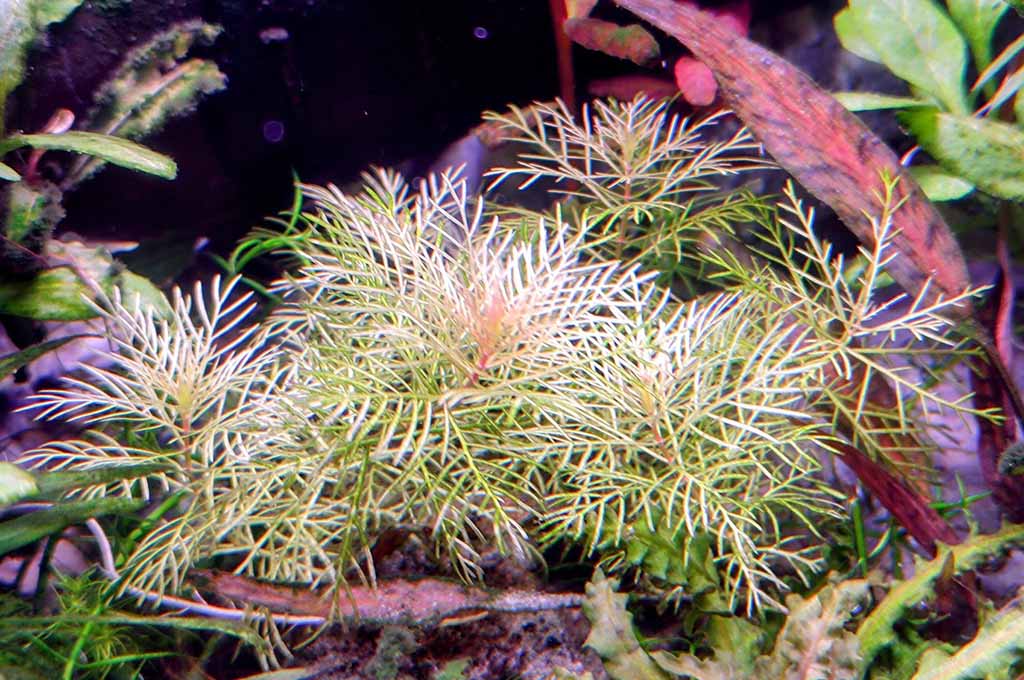
Golden myriophyllum mattogrossense
Care for Myriophyllum in an Aquarium
It is a relatively low-maintenance plant but requires some basic care to survive in your aquarium. Below are some common care tips.
Water Parameters
| pH: 6.0-7.5 | Hardness: Soft to moderately hard water |
| Temperature: 22-28°C (72-82°F) | Water quality: Maintain good water quality with regular water changes and proper filtration. |
Lighting
- Light intensity: Moderate to highlight is ideal for healthy growth.
- Lighting duration: Aim for 10–12 hours of light per day.
CO2 Injection
- CO2 levels: While not strictly necessary, providing CO2 can promote faster growth and more vibrant green color.
- CO2 systems: If using a CO2 injection system, maintain appropriate levels and monitor the pH.
Fertilization
- Nutrient requirements: Myriophyllum mattogrossense requires a balanced supply of nutrients, especially nitrogen, phosphorus, and potassium.
- Fertilizer types: Use liquid or tablet fertilizers specifically designed for aquariums.
- Fertilization frequency: Follow the manufacturer’s instructions for proper dosage and application frequency.
Trimming
- Growth rate: Myriophyllum mattogrossense is a fast-growing plant.
- Regular trimming: Trim back any leggy or overgrown stems to maintain their shape and prevent them from becoming too dense.
- Propagation: Use the cuttings for propagation.
Substrate
- Nutrient-rich substrate: A nutrient-rich substrate can promote healthy growth.
- Substrate depth: A depth of 2–3 inches is generally sufficient.
Pest and Disease Control
- Monitor for pests: Keep an eye out for common aquarium pests like algae, snails, and planarians.
- Treat infestations promptly: If you notice any pests, take appropriate measures to address the infestation.
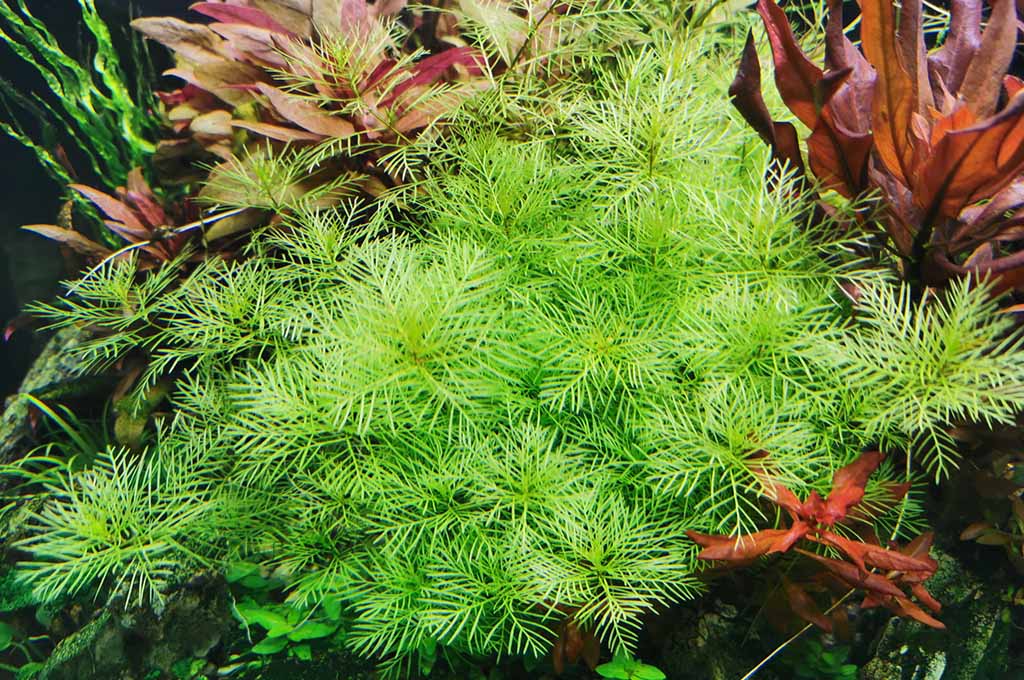
Myriophyllum plants
How to Do When Myriophyllum Mattogrossense Emersed
If your Myriophyllum mattogrossense plant starts to grow emersed (above the waterline), there are a few options to consider.
1. Trim and Submerge
- Trim: Carefully trim back the emersed growth.
- Submerge: Gently push the remaining plant back underwater.
- Maintain conditions: Ensure proper water conditions and lighting to encourage submerged growth.
2. Emersed Growth
- Allow emersed growth: If you prefer the emersed look, you can allow the plant to continue growing above the waterline.
- Consider terrestrial growth: Some plants, including Myriophyllum, can adapt to terrestrial growth. However, it may require specific conditions and care.
3. Adjust Aquarium Conditions
- Reduce light intensity: To discourage emersed growth, try reducing the light intensity in your aquarium.
- Increasing CO2 levels: Increasing CO2 levels can promote submerged growth.
Tips for Managing Emerged Growth
- Monitor closely: Keep a close eye on the plant to ensure it remains healthy.
- Avoid sudden changes: Avoid sudden changes in water parameters, lighting, or CO2 levels.
- Experiment: If you’re unsure what to do, try different approaches to see what works best for your plant.
Concluding Thoughts
Myriophyllum mattogrossense is a beautiful and useful aquarium plant that will give your underwater landscape depth and texture. If cared for properly, with suitable substrate, adequate lighting, CO2, and nutrients, you can reap its vibrant green leaves along with its benefits to your aquarium ecology. With the tips you see in this article, you can successfully grow Myriophyllum mattogrossense and establish a living underwater garden.
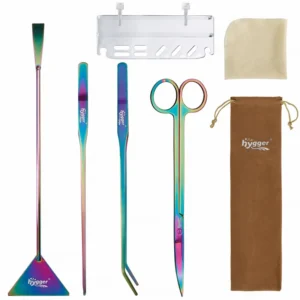
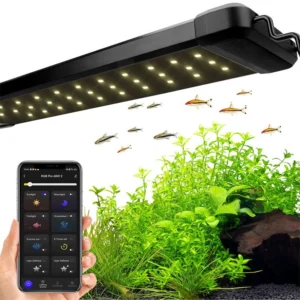
Leave a comment